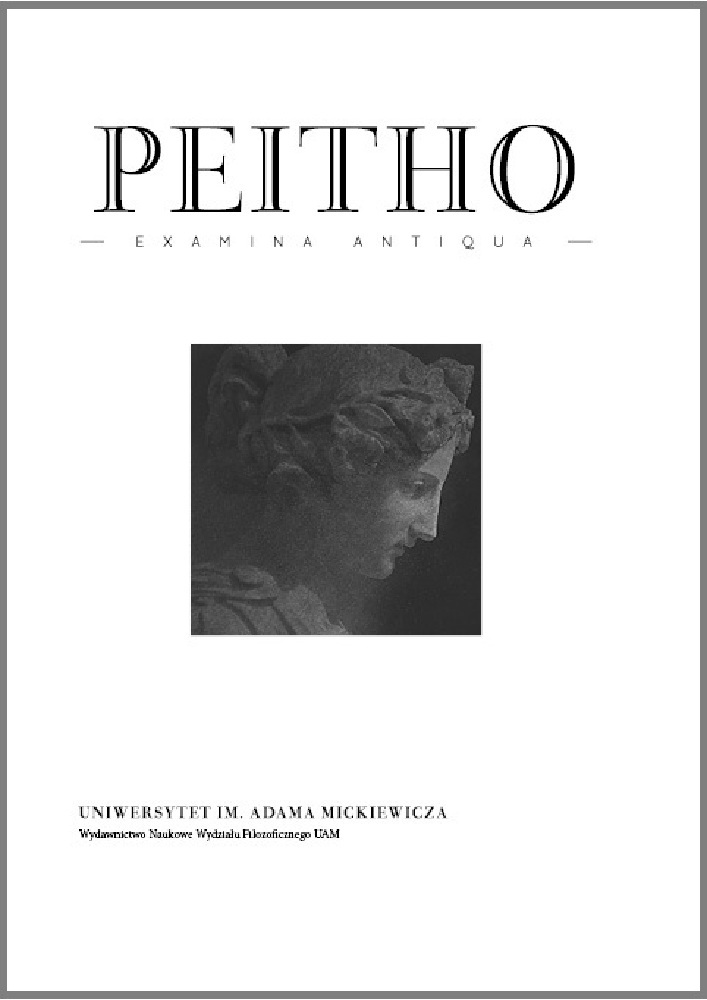Abstract
The paper deals with the reception of Aristotle’s definition of rhetoric
(Rhet. I 1355b26–27) in several Byzantine commentators of Hermogenes’
and Aphthonius’ treatises. A justification of critical interpretation
of this definition is to be found in the commentaries of Troilus and Athanasius
(4th/5th century) as well as Sopatros (6th century) and Doxapatres
(11th century), Maximus Planudes (13th/14th century) and several anonymous
commentators. The Byzantine tradition has found Aristotle’s definition
of rhetoric to be all too theoretical and insufficiently connected to
practical activity, which Byzantium identified with political life.
References
Arystoteles, 1988, Retoryka. Poetyka, przełożył, wstępem i komentarzem opatrzył H. Podbielski, Warszawa.
Cichocka, H., 1990, „Recepcja traktatu Hermogenesa „De ideis” w renesansie (zagadnienia wybrane)”, Eos 78, s. 225–236.
Cichocka, H., 1994, Teoria retoryki bizantyńskiej, Warszawa.
Cichocka, H., 1995, „Bizantyńska definicja retoryki a jej klasyczne wzorce”, Meander 11–12, s. 535–547.
Cichocka, H., 2004, Mimesis i retoryka w traktatach Dionizjusza z Halikarnasu a tradycja bizantyńska, Warszawa.
Conley, Th. M., 1990, “Aristotle’s Rhetoric in Byzantium”, Rhetorica 8, s. 29–44.
Crem, T. M., 1956, “The Definition of Rhetoric according to Aristotle”, LThPh 12, pp. 233–250.
Oehler, K., 1964, „Aristoteles in Byzanz”, GRBS 5, s. 133–146 (reprint w: K. Oehler, Antike Philosophie und byzantinisches Mittelalter, München 1969, s. 272–286).
Rabe, H. (ed.), 1931, Prolegomenon Sylloge, Lipsiae.
Rabe, H. (ed.), 1975, Hermogenes, Opera, Stuttgardiae.
Rutheford, I., 1992, «Inverting the Canon: Hermogenes on Literature», HSCP 94, s. 355–378.
Schouler, B., 1995, „La définition de la rhétorique dans l’enseignement byzantin”, Byzantion 65, s. 137–175.
Walz, Ch. (ed.), 1833, Rhetores Graeci, vol. V, Stuttgardiae.
Walz, Ch. (ed.), 1834a, Rhetores Graeci, vol. III, Stuttgardiae.
Walz, Ch. (ed.), 1934b, Rhetores Graeci, vol. VI, Stuttgardiae.
Westerink, L. G. (ed.), Olympiodorus, In Platonis Gorgiam Commentaria, Leipzig.
License
Peitho provides immediate open access to its content on the principle that making research freely available to the public supports a greater global exchange of knowledge.
